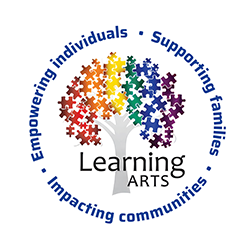
Understanding Autism: A Guide for Parents

As a parent, navigating the world of autism spectrum disorder (ASD) can be both overwhelming and daunting. Understanding autism and knowing how to best support your child can feel like a constant challenge. At Learning ARTS, we’re here to provide guidance and support every step of the way. In this comprehensive guide, we’ll delve into key aspects of understanding autism, offer insights into early signs and diagnosis, explore therapy options, and provide tips for parenting a child with autism.
Understanding Autism
Autism, or autism spectrum disorder (ASD), is a complex neurodevelopmental condition that affects individuals differently. It impacts social interaction, communication, and behavior. Understanding autism involves recognizing that each child’s experience is unique and may require personalized support and interventions. It’s essential to educate yourself about the various characteristics and traits associated with autism to better understand your child’s needs and experiences.
Parents of Children within the Autism Spectrum
For parents of children within the autism spectrum, navigating daily challenges while ensuring their child’s well-being is a top priority. Learning about autism and becoming informed advocates for your child can make a significant difference in their development and quality of life. Connecting with other parents who share similar experiences can provide valuable support and a sense of community.
Early Signs of Autism

Recognizing the early signs of autism is crucial for early intervention and support. These signs may include delays in speech and language development, difficulty with social interactions, repetitive behaviors, and sensory sensitivities. Being aware of these signs can lead to early diagnosis and access to appropriate interventions. It’s important to monitor your child’s development closely and consult with healthcare professionals if you have concerns about their behavior or milestones.
Autism Diagnosis
Obtaining an autism diagnosis involves a comprehensive evaluation by healthcare professionals, including pediatricians, psychologists, and developmental specialists. A diagnosis can provide clarity and access to services that can support your child’s unique needs. It’s essential to seek evaluations from professionals who specialize in autism assessment to ensure accurate diagnosis and appropriate recommendations for intervention and support.
Autism Therapy and Interventions
There are various therapy and intervention approaches available to support individuals with autism. Applied Behavior Analysis (ABA) therapy is a widely recognized and evidence-based intervention focusing on improving social, communication, and behavioral skills. Other interventions may include speech therapy, occupational therapy, and sensory integration therapy. Collaborating with a team of professionals to create a comprehensive treatment plan tailored to your child’s specific needs is essential for maximizing their progress and development.
Parenting a Child with Autism
Parenting a child with autism comes with its own set of joys and challenges. It’s essential to create a supportive and nurturing environment for your child while also caring for yourself. Seeking support from professionals, connecting with other parents, and advocating for your child’s needs are all vital aspects of parenting a child with autism. Remember to celebrate your child’s strengths and achievements, and don’t hesitate to ask for help when needed. With patience, love, and support, you can help your child thrive and reach their full potential. For more information about parenting a child with autism, visit our parent training page.
In conclusion, understanding autism is the first step towards providing the best possible support and opportunities for your child. By educating yourself, seeking support, and advocating for your child, you can help them thrive and reach their full potential. Remember, you’re not alone on this journey, and Learning ARTS is here to support you every step of the way.
For more information, you can always contact us at referrals@learningarts.com.



